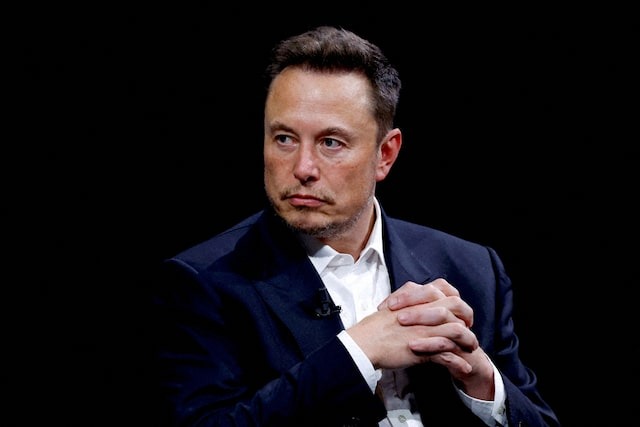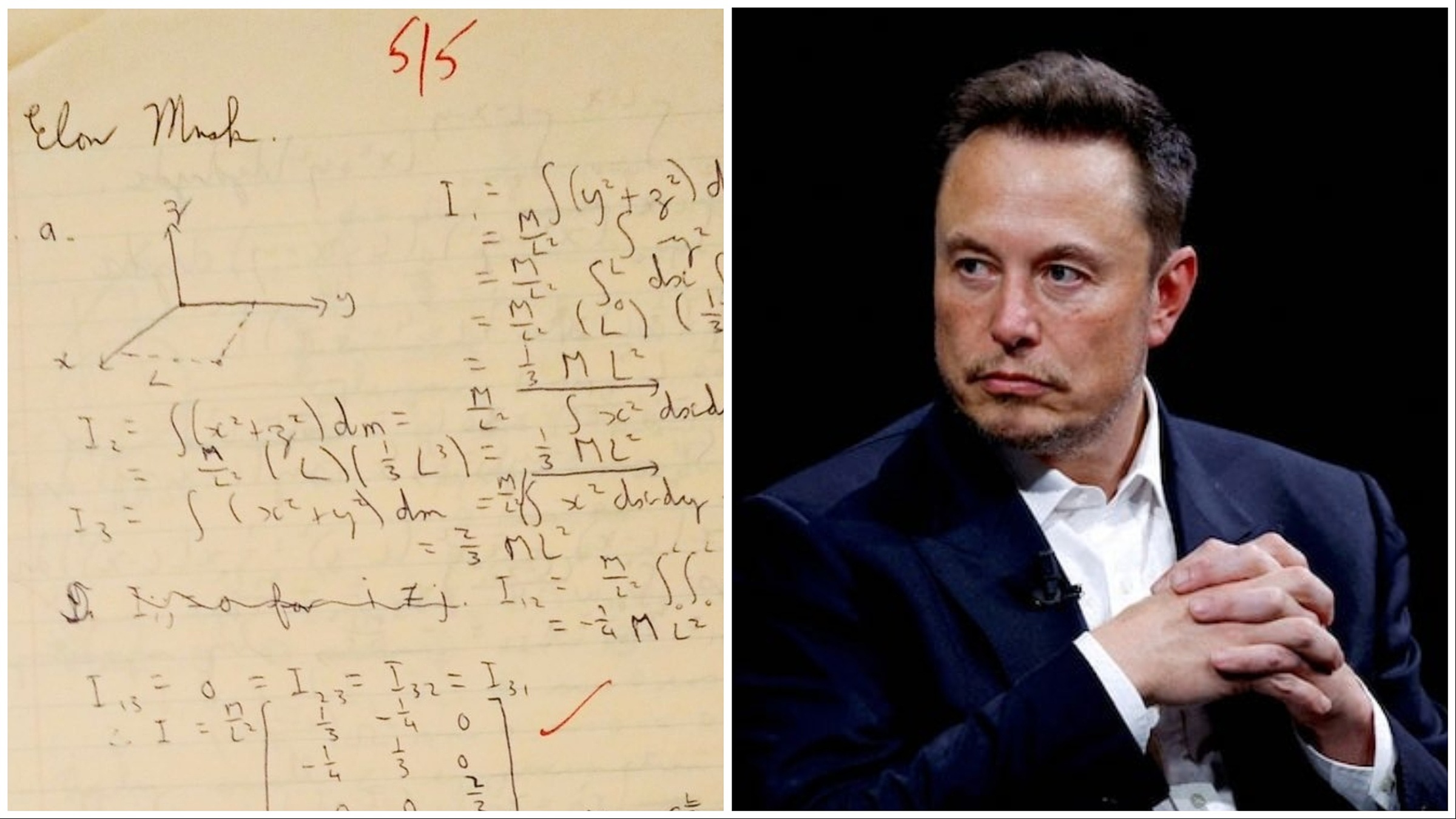
Many people might feel frustrated by math and physics concepts that seem useless, particularly when they hear about billionaires who dropped out of school. However, they should note that the world's wealthiest man, Elon Musk, has pointed out that a solid academic foundation was essential for his success.
Those who believe dropping out can still lead to success should reevaluate Elon Musk's example. Despite his exceptional intelligence, he chose to study and master fundamental math and physics; his success wasn't bestowed upon him like a windfall.
This comment was sparked by Elon Musk's recent sharing of his university assignments from his time at the University of Pennsylvania, showcasing his work on calculating moments of inertia based on fundamental principles. Many found it fascinating as it highlighted the Tesla CEO's academic background and intellectual rigor.

|
|
Elon Musk attends the Viva Technology conference in Paris, France, on June 16, 2023, as seen in a photo by Reuters. He is also seen in a photo sharing his physics assignment paper from the University of Pennsylvania. |
Somehow, people have developed a misconception that the wealthy didn't invest a lot of effort in their studies or that math and physics are irrelevant. They forget that their smartphones rely on thousands of complex scientific equations. Top global companies are tech firms, founded on scientific principles. The wealthy fret about not studying enough, while others express dissatisfaction with the learning process. With such a mindset, how can they ever achieve success?
Vietnam's wealthiest individuals typically pursued higher education in Eastern Europe, frequently with degrees in physics, demonstrating that a strong academic focus can lead to enduring success. Moreover, I've observed that billionaires consistently select top institutions for their offspring, never recommending that they forgo education.
It is not that billionaires were unsuccessful because they dropped out of school. In fact, many of them attended prestigious universities, but they left because those institutions could not provide them with the level of intellectual stimulation they craved. They chose to pursue more advanced learning opportunities, not because they were averse to studying, but because they were driven to continue challenging themselves.
Those who struggle academically or who are not willing to put in the effort justify skipping school by pointing to billionaires who did not finish college. However, they fail to realize that most rich individuals were actually high achievers in school.
